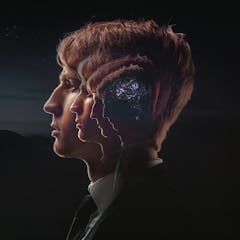
Articles on Consciousness
Displaying 41 - 60 of 77 articles

Is everything about who we are contained within our brains?

How long does the brain remain conscious after decapitation?

Specific brain networks are at work when we are conscious. New results can help distinguish truly unconscious patients from those who have some degree of consciousness.

If consciousness is a by-product of our brains’ nonconscious processes, where does that leave us?

Science is creating new living matter – like stem cells grown to create brain tissues in the lab. With power comes responsibility and what matters is an ethical question, not a scientific one.

A resonance theory of consciousness suggests that the way all matter vibrates, and the tendency for those vibrations to sync up, might be a way to answer the so-called ‘hard problem’ of consciousness.

Video feedback may be the nearest we have to visualising what conscious processing in the brain is like.

Consciousness final frontier of science?

Do you want to live forever? If so, you might want to think again.

Researchers’ views depend in part on what technology is (or will be) capable of – and in part on what consciousness actually is.

See if you can get your head around this.

Author Kate Cole-Adams delves into fascinating questions about consciousness and self.

Both psychologists and neuroscientists are interested in how working memory holds on to items over brief intervals – and are investigating from different angles.

Terrifying accounts of surgery 200 years ago remind us how far general anaesthesia has come. Yet we still know little about how anaesthetics alter consciousness.

Neuroscience can now make a difference in the lives of people with severe brain injury, but will they get the care they deserve? More than a question of entitlements, this is an issue of civil rights.

Scientists are increasingly working out that the body actually shapes the mind. New research even raises hopes about new treatments for mental health problems.

It has long been claimed that subliminal messages work. Now two studies have set the record straight.

Many people believe they have a soul. But for psychologists, who study behaviour, it is not so much that souls do not exist, it is that there is no need for them.

How to embrace the characteristics that give start-up businesses their edge.

Lucid dreaming is showing some promise in treating nightmares. Could it help treat some mental illnesses, too?





